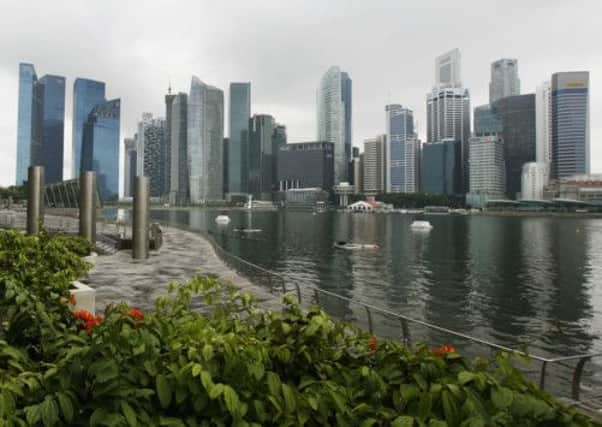UK cities are being left behind in planning for the long term


Lithuania, wrongly written off by some as a basket case, has a detailed national plan to guide its development to 2025.
South Korea launched a commission five years ago to look at the future integration of robotics into city life.
Advertisement
Hide AdAdvertisement
Hide AdDeveloping economies are stealing a march on their rivals in the developed world with long-term plans for the future and a sharp focus on the efficient use of resources.
The UK, meanwhile, has been incredibly complacent, failed to notice what is going on and is suddenly seeing everything changing but cannot find the right answer.
This is the scenario set out by Rohit Talwar, who advises international governments and corporations on how to understand and respond to the various forces shaping the future.
He will explore these themes and others at the Intelligent Cities Conference in Leeds later this month.
Advertisement
Hide AdAdvertisement
Hide AdSpeaking to the Yorkshire Post yesterday, Mr Talwar said technological infrastructure like fast broadband is very important, but local and central governments must understand that the most successful towns and cities are sustainable, economically viable and vibrant places.
“They need to think about a lot more than just technology,” he said.
He added that planners must find new uses for high streets following the consolidation of the retail sector and suggested repurposing retail units as community resources.
Mr Talwar said public buildings such as schools could be used as “multi-service facilities” in the evenings to accommodate local libraries, community centres, doctors’ surgeries and even magistrates’ courts.
Advertisement
Hide AdAdvertisement
Hide Ad“Such moves would meet the twin goals of cutting the operating costs for local councils and taking local facilities and giving them more value to the community,” he said.
He suggested that Britain needs to shake up its education system to take account of the instant availability of academic information and increase efforts on helping pupils to learn valuable life skills to help arrest the nation’s slide down OECD world rankings and deal with the vast numbers of disenfranchised young people.
Mr Talwar said the industries of the future will develop to support the ageing population and care for the elderly.
He also highlighted the growth potential of sectors including biotechnology, biomanufacturing, human enhancements, wearable robotics, nanotechnology and advanced materials.
Advertisement
Hide AdAdvertisement
Hide AdMr Talwar said Leeds should host international conventions if it wants to realise ambitions to expand its healthcare sector.
This will bring academic experts and industry together and forge new global links for the city and help develop its cluster of businesses.
But Mr Talwar cautioned that “it’s not all about money”, adding that culture, lifestyle and values help make a destination and a great place to live.
The Intelligent Cities Conference takes place at Leeds Metropolitan University on June 19.
Advertisement
Hide AdAdvertisement
Hide AdOrganisers said Rotterdam’s planning for sustainability, Helsinki’s investment in energy and resources, and the IBM city control centre in Rio de Janeiro are all examples of how cities around the world are taking a smart approach.
It will include presentations from Cambium Networks, Ericsson, EE, IBM, Cisco, Arup and Aql, Leeds Data Thing, Medtech University of Leeds and Synchronoss Technologies.
Paul Hadley, deputy director of Information Economy Industrial Strategy at the Department for Business, Innovation and Skills, will also speak.
Mr Talwar’s business, Fast Future, helps clients identify and analyse “future trends, drivers and shocks”.
Advertisement
Hide AdAdvertisement
Hide Ad“Technology is a critical enabler of the smart city, but a truly sustainable and intelligent model requires us to go much broader and think about every aspect of what makes a city vibrant and viable,” he said. He urged governments to see technology infrastructure as part of the vision, not the whole solution.